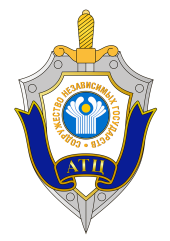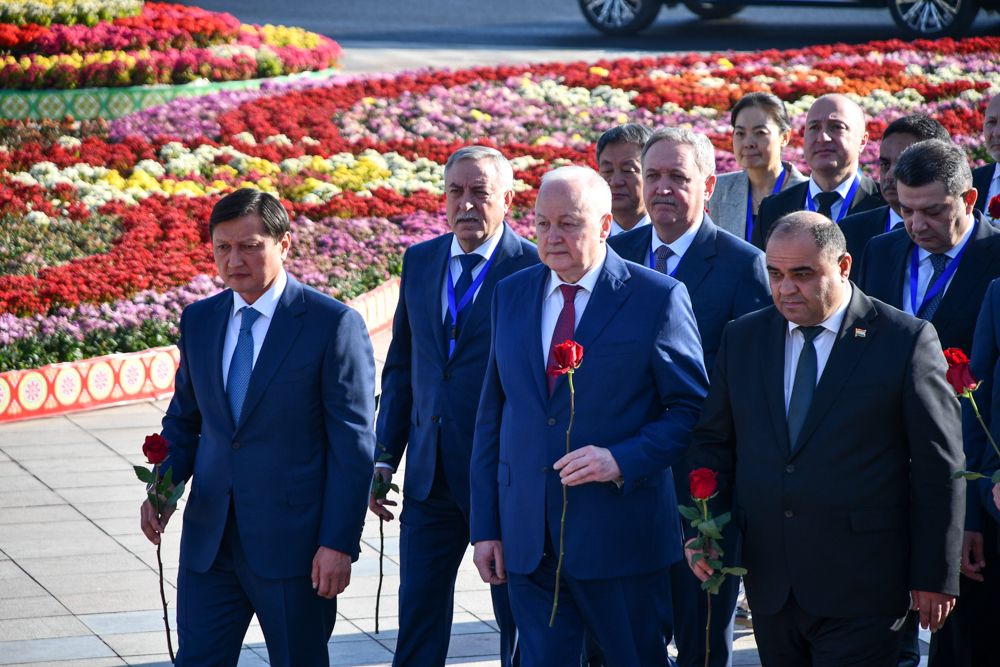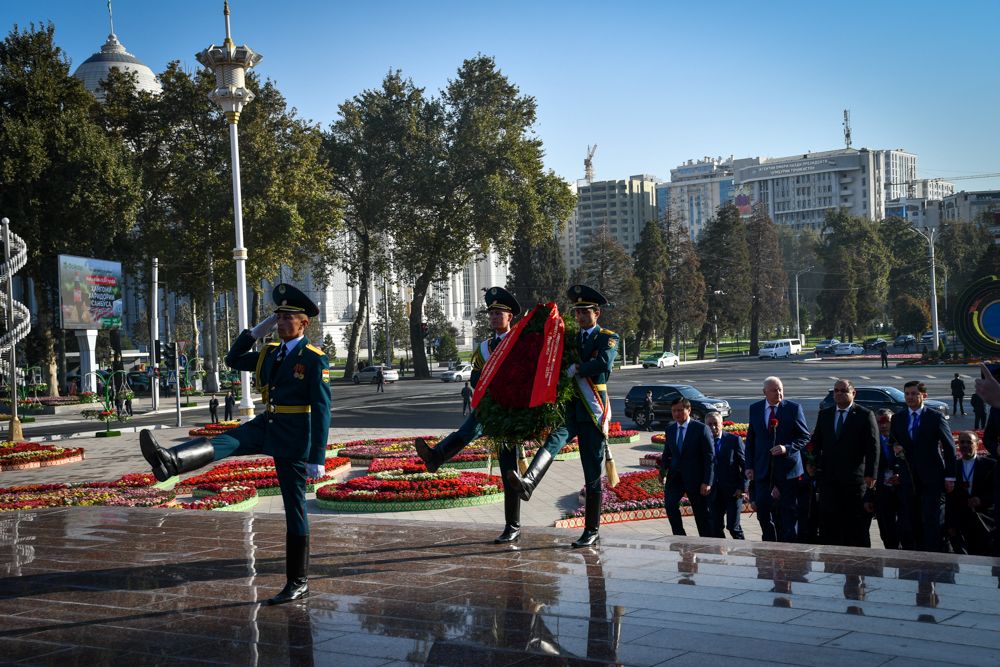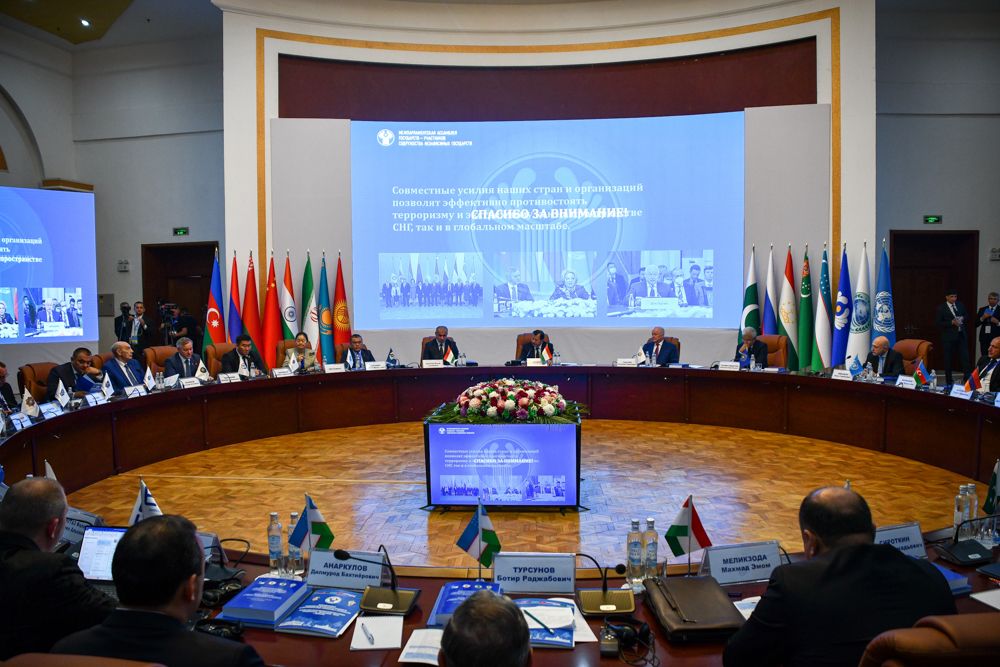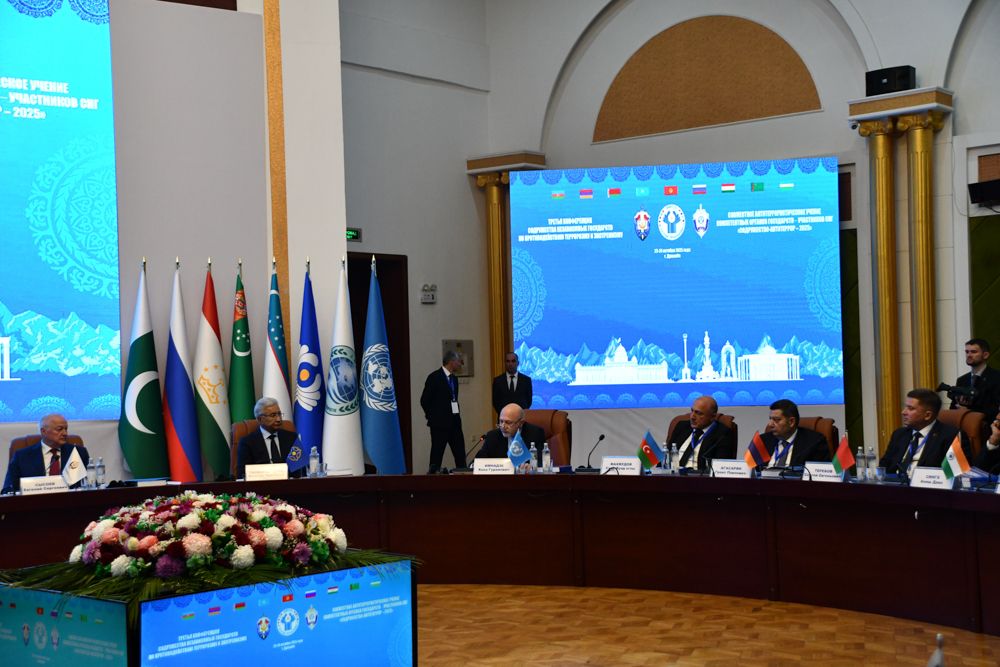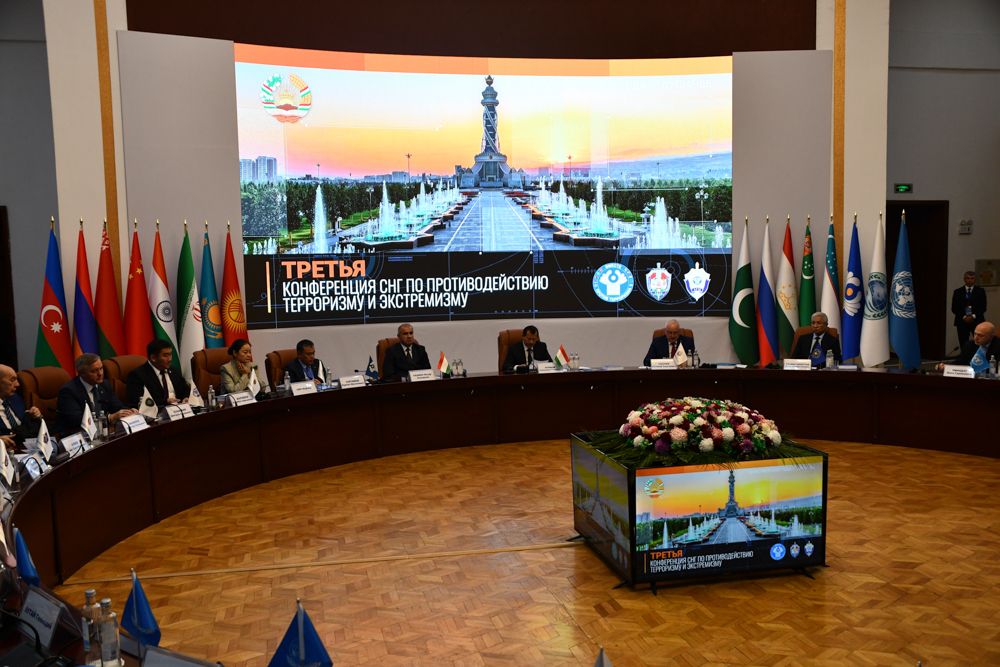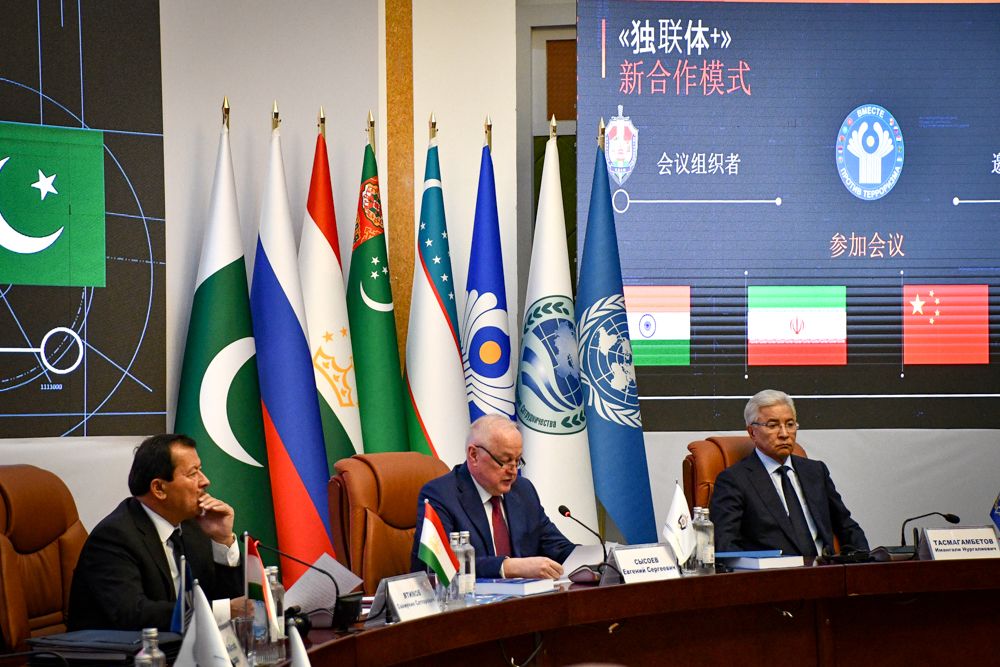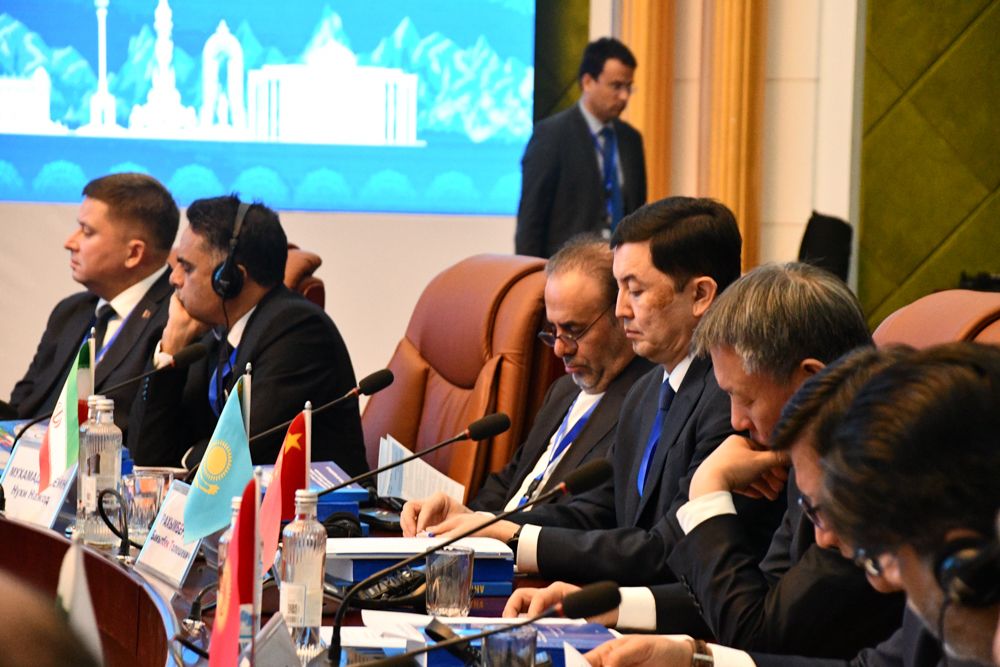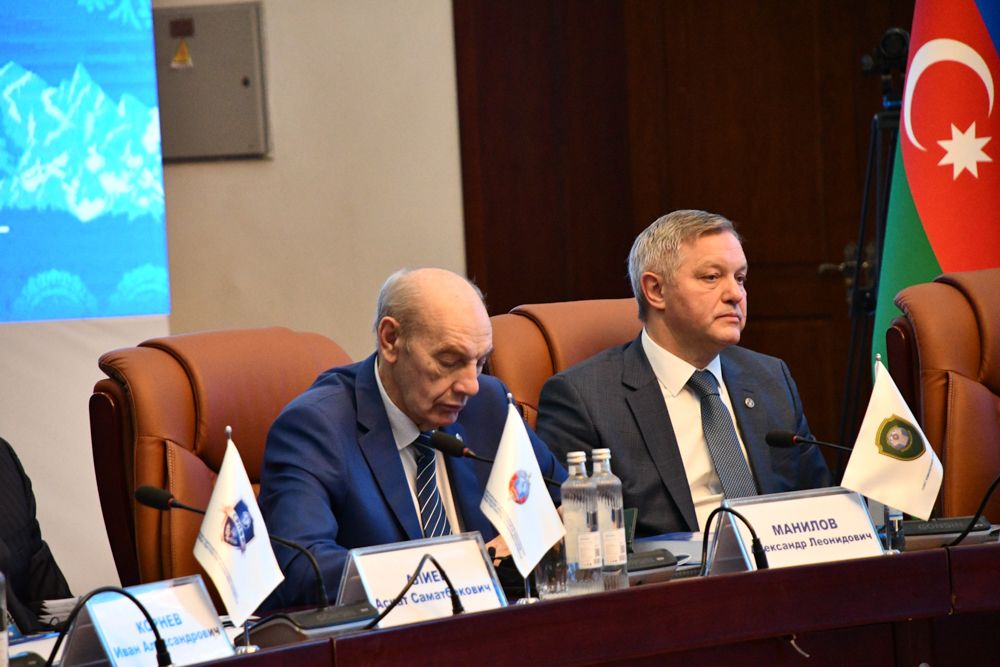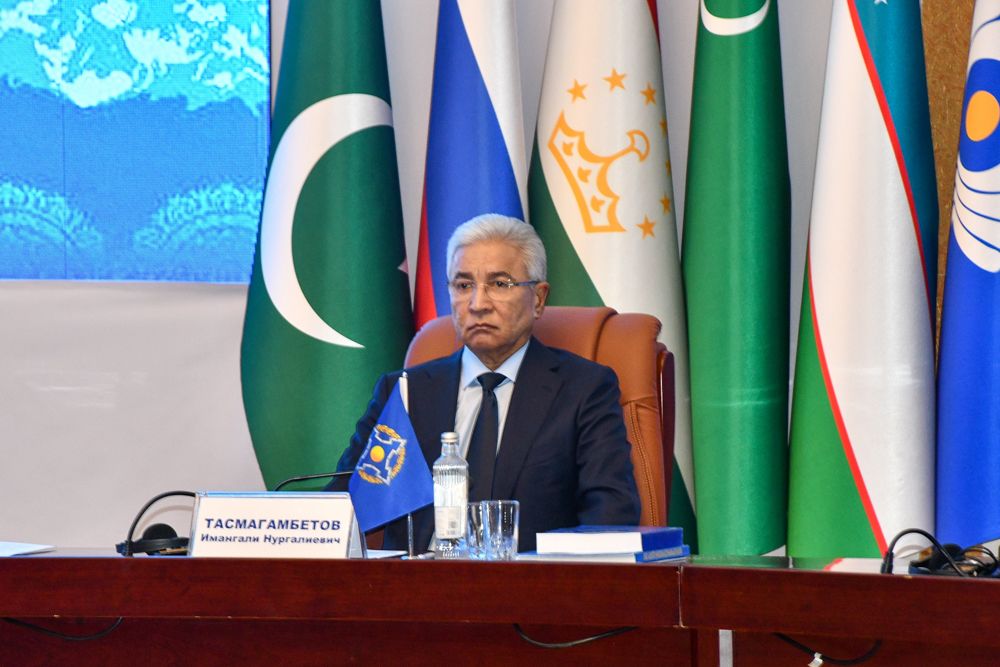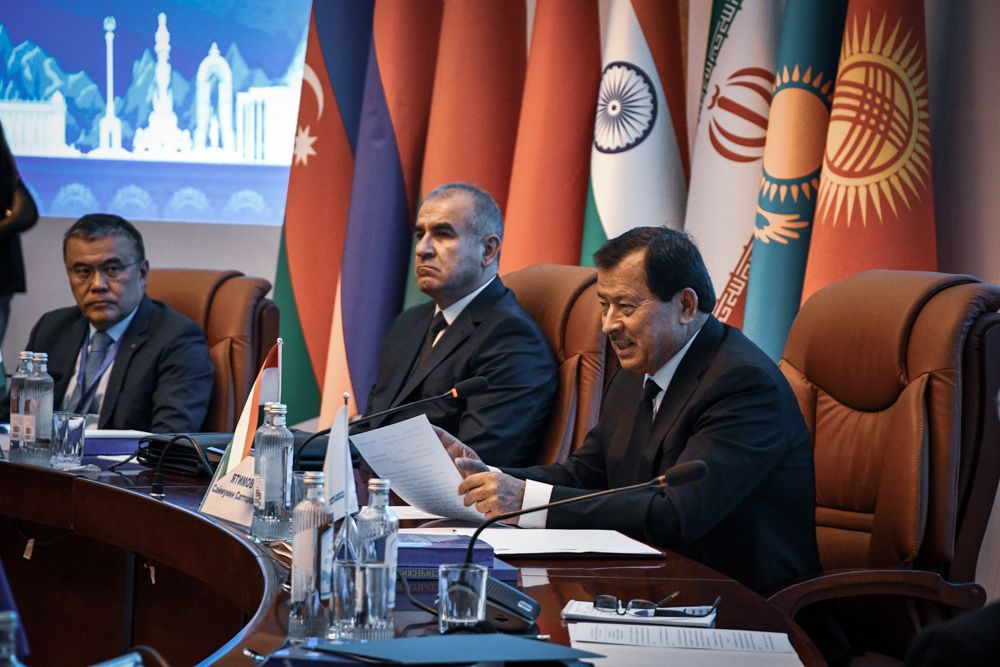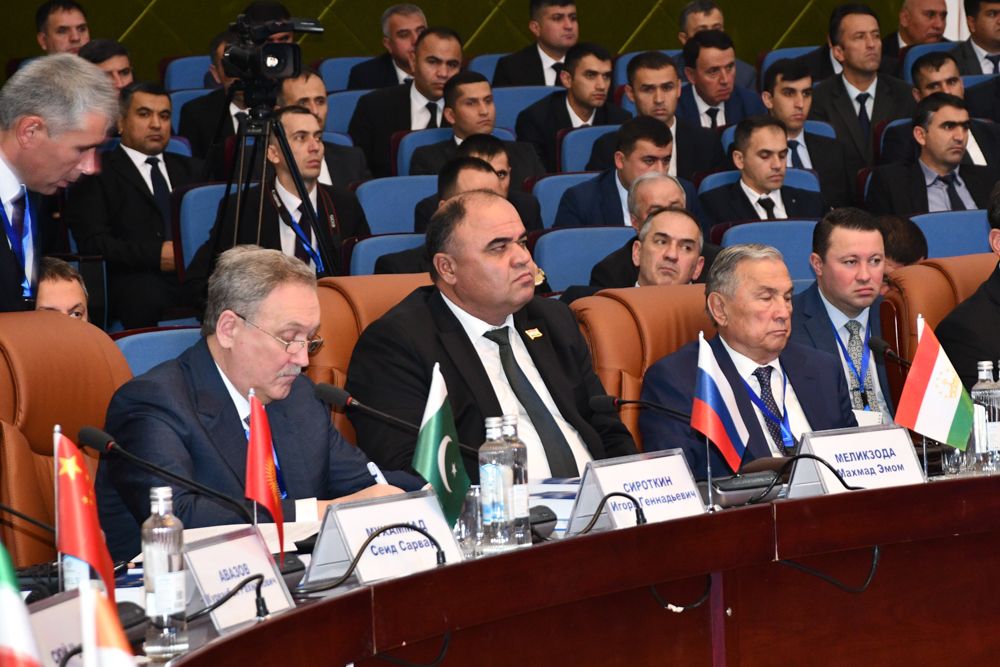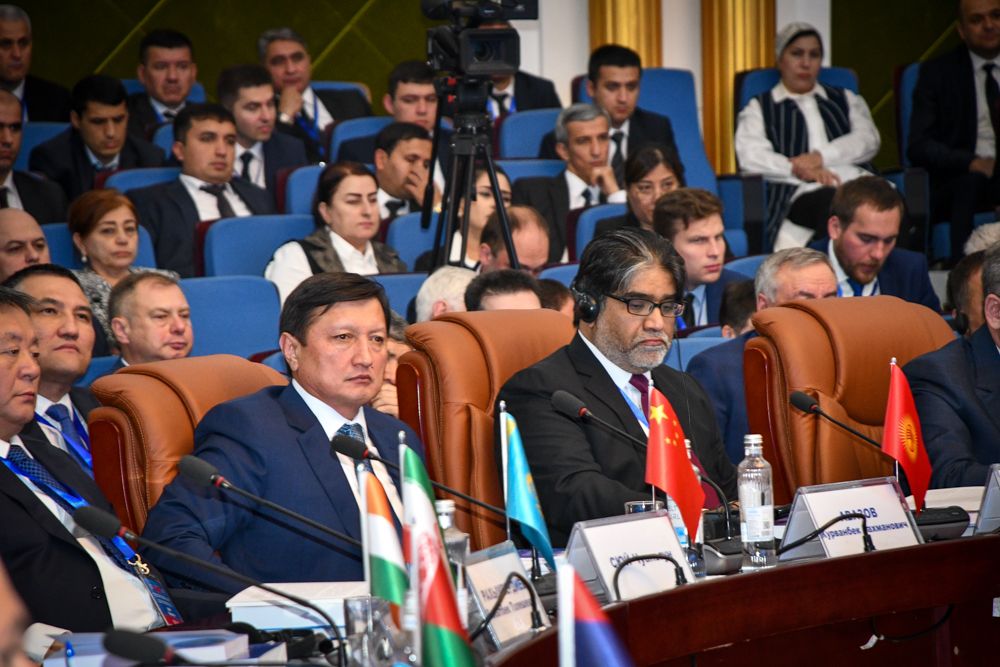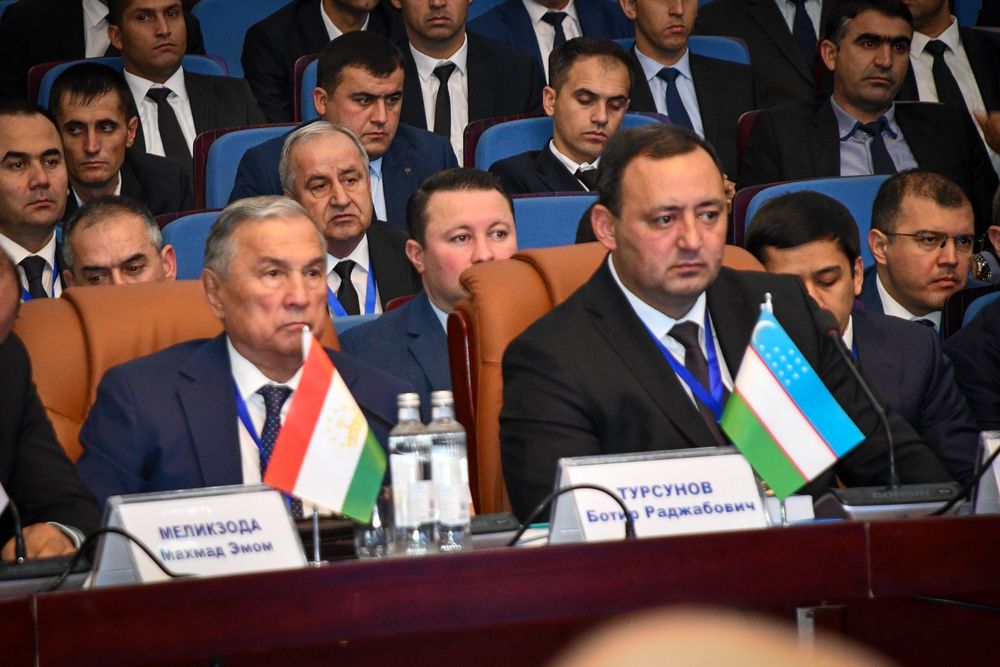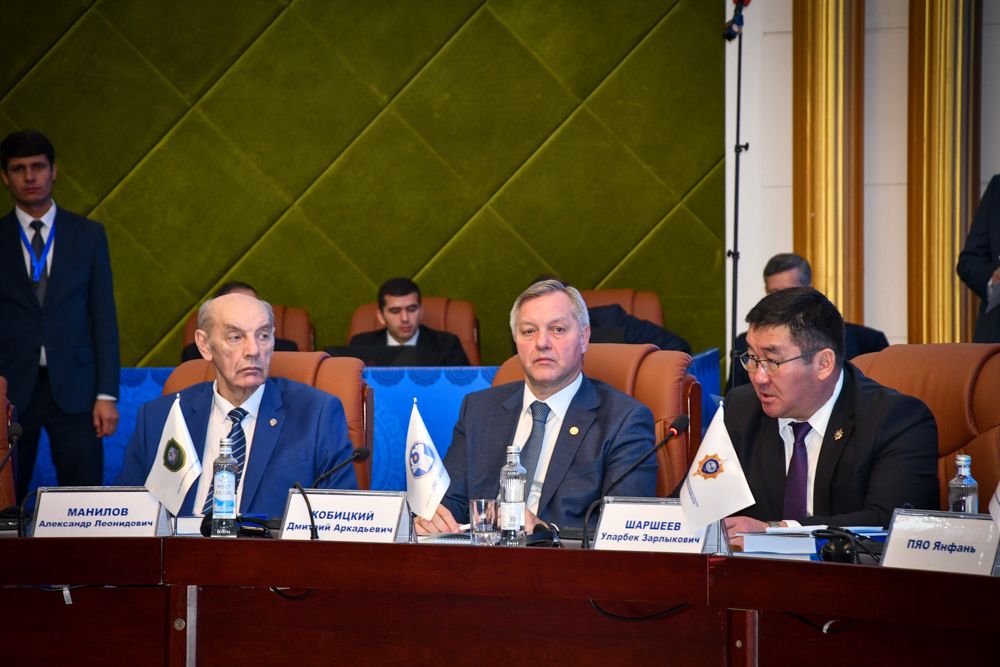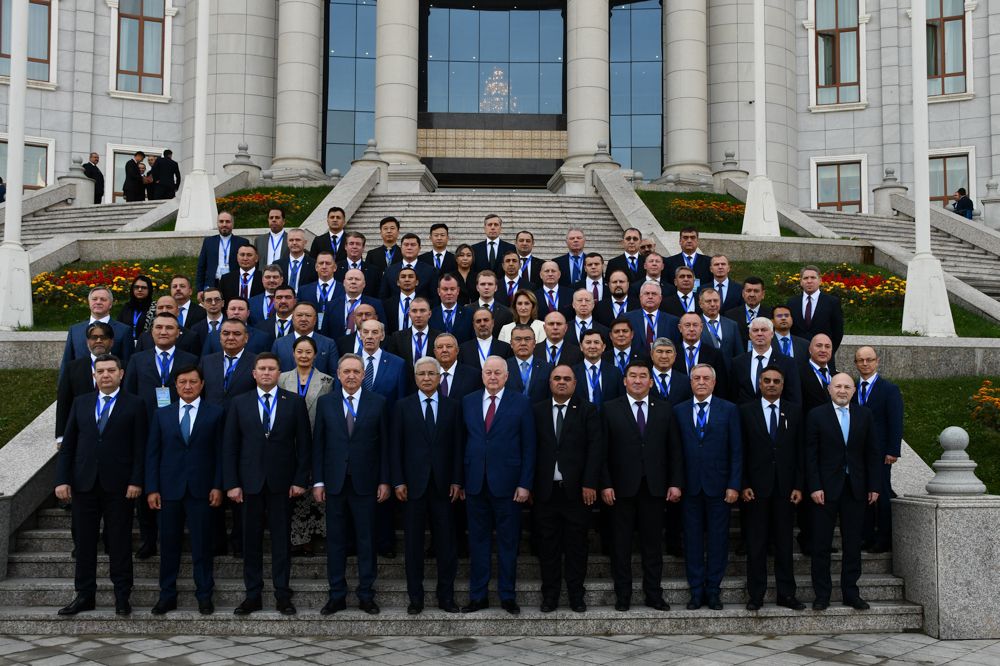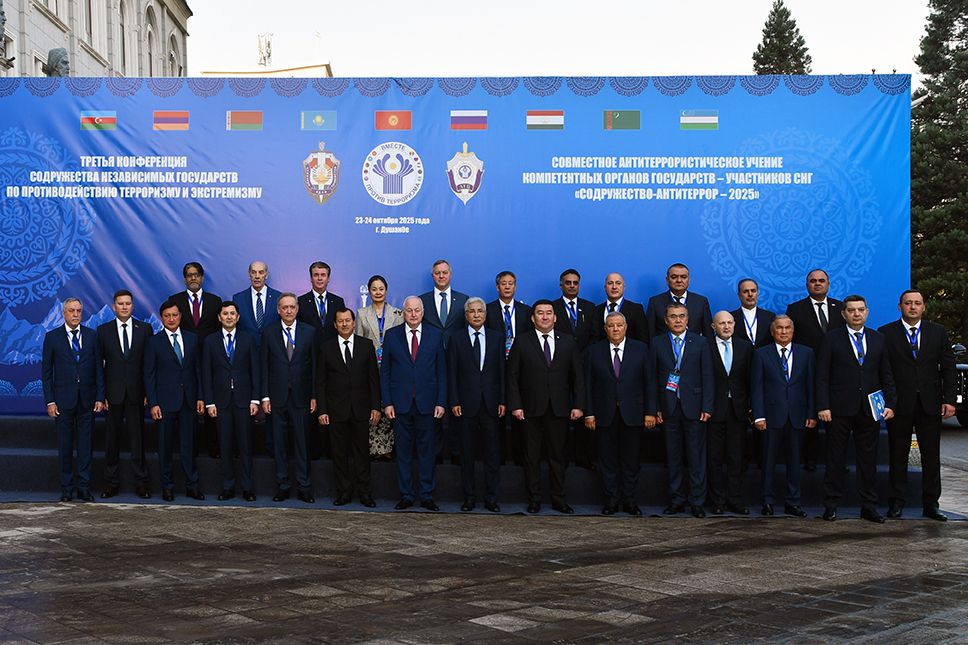
OUTCOMES OF THIRD CIS CONFERENCE ON COUNTERING TERRORISM AND EXTREMISM
Мероприятия, Органы СНГ
The Third CIS Conference on Countering Terrorism and Extremism (hereinafter referred to as the Conference) was held on October 23, 2025 in Dushanbe, Tajikistan.
The event was organized by the State Committee for National Security of the Republic of Tajikistan and the CIS Anti-Terrorism Center.
The Conference was attended by over 150 delegates representing:
competent authorities of 12 CIS member-states and SCO member-states (Republic of Azerbaijan, Republic of Armenia, Republic of Belarus, Republic of India, Islamic Republic of Iran, Republic of Kazakhstan, People's Republic of China, Kyrgyz Republic, Islamic Republic of Pakistan, Russian Federation, Republic of Tajikistan, Republic of Uzbekistan);
working structures of 10 CIS bodies (Executive Committee, Council of the Inter-Parliamentary Assembly, Council of Commanders of Border Troops, Council of Ministers of Internal Affairs, Council of Heads of Financial Intelligence Units, Council of Heads of Customs Services, Coordinating Council of Prosecutor Generals, Coordinating Transport Meeting, Interstate Aviation Committee, Anti-Terrorism Center);
10 specialized bodies of 5 international organizations (the United Nations: Security Council Counter-Terrorism Committee, Office of Counter-Terrorism, Security Council Analytical Support and Sanctions Monitoring Team, Regional Center for Preventive Diplomacy for Central Asia, Office on Drugs and Crime regional office for Central Asia; Shanghai Cooperation Organization: Secretariat and Executive Committee of the Regional Anti-Terrorist Structure; Secretariat of the Collective Security Treaty Organization; Secretariat of the Conference on Interaction and Confidence Building Measures in Asia, Eurasian Group on Combating Money Laundering and Financing of Terrorism);
9 scientific and educational organizations (Basic Organization of the CIS member-states for training personnel in the field of countering terrorism and extremism (Academy of the Federal Security Service of the Russian Federation), Basic Organization of the CIS member-states for research on combating terrorism and other manifestations of extremism (Scientific-Research Center of the Federal Security Service of the Russian Federation), Academy of the State Security Service of the Republic of Azerbaijan, Scientific and Educational Center of the National Security Service of the Republic of Armenia, Academy of National Security of the Republic of Belarus, Academy of the National Security Committee of the Republic of Kazakhstan, Academy of the State National Security Committee of the Kyrgyz Republic, Higher School of the State National Security Committee of the Republic of Tajikistan, Academy of the State Security Service of the Republic of Uzbekistan).
The conference was opened by the Secretary of the Security Council of the Republic of Tajikistan Yusuf Akhmadzoda Rakhmon who announced the Message of the Chair of the Council of Heads of CIS States, President of the Republic of Tajikistan Emomali Rahmon.
The Plenary meeting featured statements by the Chair of the State Committee for National Security of the Republic of Tajikistan, CSTO Secretary General, CIS Deputy Secretary General, SCO Deputy Secretary General, Special Representative of the UN Secretary General for Central Asia, CIS IPA Secretary General, Director of the SCO RATS Executive Committee and Head of CIS ATC.
While assessing the situation in the field of combating terrorism and extremism, the speakers stressed the need to unite the efforts of the international community to effectively counter terrorism and noted the importance of held Conference combining its potential with the Dushanbe Process, which created a platform for global interaction, comprehensive dialogue and exchange of best practices in this area.
During the first session of the Conference, participants exchanged national experiences in countering terrorism and extremism, including:
assessment of the situation and forecasts of its development in the field of countering terrorism and extremism, taking into account the transformation of the international security system;
impact of political, economic, religious and other factors on the growing terrorist and extremist activity;
innovative methods of monitoring and analyzing security threats with use of information technologies, artificial intelligence, big data analysis, etc.;
building of an efficient national system for the prevention of terrorism and extremism, especially among minors and youth;
formation and development of a national system of measures in the field of deradicalization of the population;
practices of organizing interaction between government agencies and transnational corporations providing information technology services to identify, restrict and block terrorist and extremist content on the Internet;
building of an efficient model of anti-terrorist security of critical facilities and crowded places;
modern methods of work aimed to counter financing of terrorism and extremism with use of electronic digital assets.
During the second session, the participants discussed topical issues of multilateral cooperation in countering terrorism and extremism, including:
assessment of the status and efficiency of joint measures to respond to existing and emerging challenges and threats;
improvement of the legal framework for multilateral cooperation and the convergence of national legislations;
development of information exchange between relevant international and regional organizations;
implementation of international projects to counteract the radicalization of the population, including minors and youth;
collective measures for the rehabilitation and re-socialization of persons previously involved in terrorist activities and their family members and an assessment of their efficiency;
preventing the use of migration channels to relocate and legalize individuals involved in the activities of terrorist and extremist organizations;
improvement of inter-state system of measures to ensure anti-terrorist protection of critical facilities, including transport and energy infrastructure facilities;
efficient multilateral mechanisms to counter the use of modern digital tools in financing terrorist and extremist activities.
The third session of the Conference was devoted to improving scientific and educational support for counter-terrorism and extremism activities.
Heads of educational organizations of the competent authorities of the CIS member-states exchanged experience in organizing educational, methodological and scientific work in this field, discussed prospects for developing cooperation, taking into account the provisions of the Comprehensive program of professional education and personnel development in the field of countering terrorism and extremism for 2026-2028, approved by the decision of the Council of Heads of Security Agencies and Special Services of the CIS member-states on October 16, 2025.
The discussions paid special attention to:
organization of training for employees of practical units and teaching staff of educational organizations in relevant areas of anti-terrorist and anti-extremist activities;
preparation of a Plan for the joint development of tentative educational programs in promising areas of study for 2026, a Roadmap for improving their educational and methodological support for educational programs for 2026-2028 and tentative professional development programs, as well as educational standards in the field of deradicalization;
formation of promising research topics for improving the educational process for 2026-2028 and a Plan for joint research for improving the educational process for 2026.
In conclusion, the participants expressed their firm commitment to strengthening and developing cooperation in countering terrorism and extremism based on the principles of openness, mutual trust, and norms of international law.
The professional dialogue during the Third CIS Counter-Terrorism Conference will continue in Dushanbe tomorrow, October 24, as part of:
a UN briefing on counter-terrorism and preventing extremism initiatives, held for the first time on the Conference sidelines. During the briefing, participants will discuss the establishment of the Counter-Terrorism Early Warning Network for Central Asia (CT EWN), as well as regional good practices in countering terrorism;
joint anti-terrorist exercise of the competent authorities of the CIS member-states Commonwealth-Antiterror – 2025, the operational capabilities display stage of which will be combined with the final stage of the exercise of the CSTO Peacekeeping Forces Indestructible Brotherhood;
a meeting of the Coordination Meeting of the Chairs of the Defence and Security Committees of the parliaments of the CSTO member-states, which will address improvement of interstate and national security legislation.
